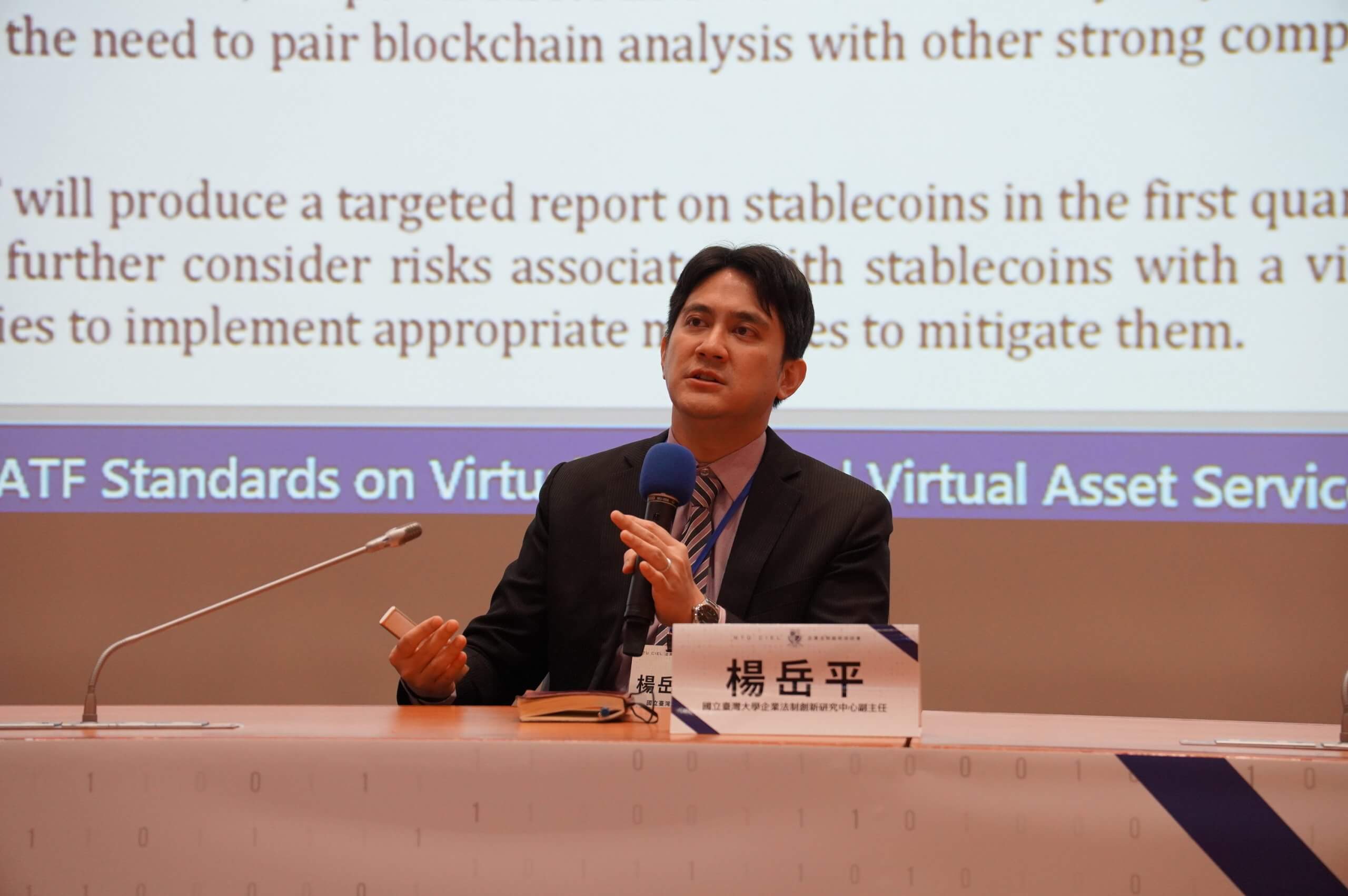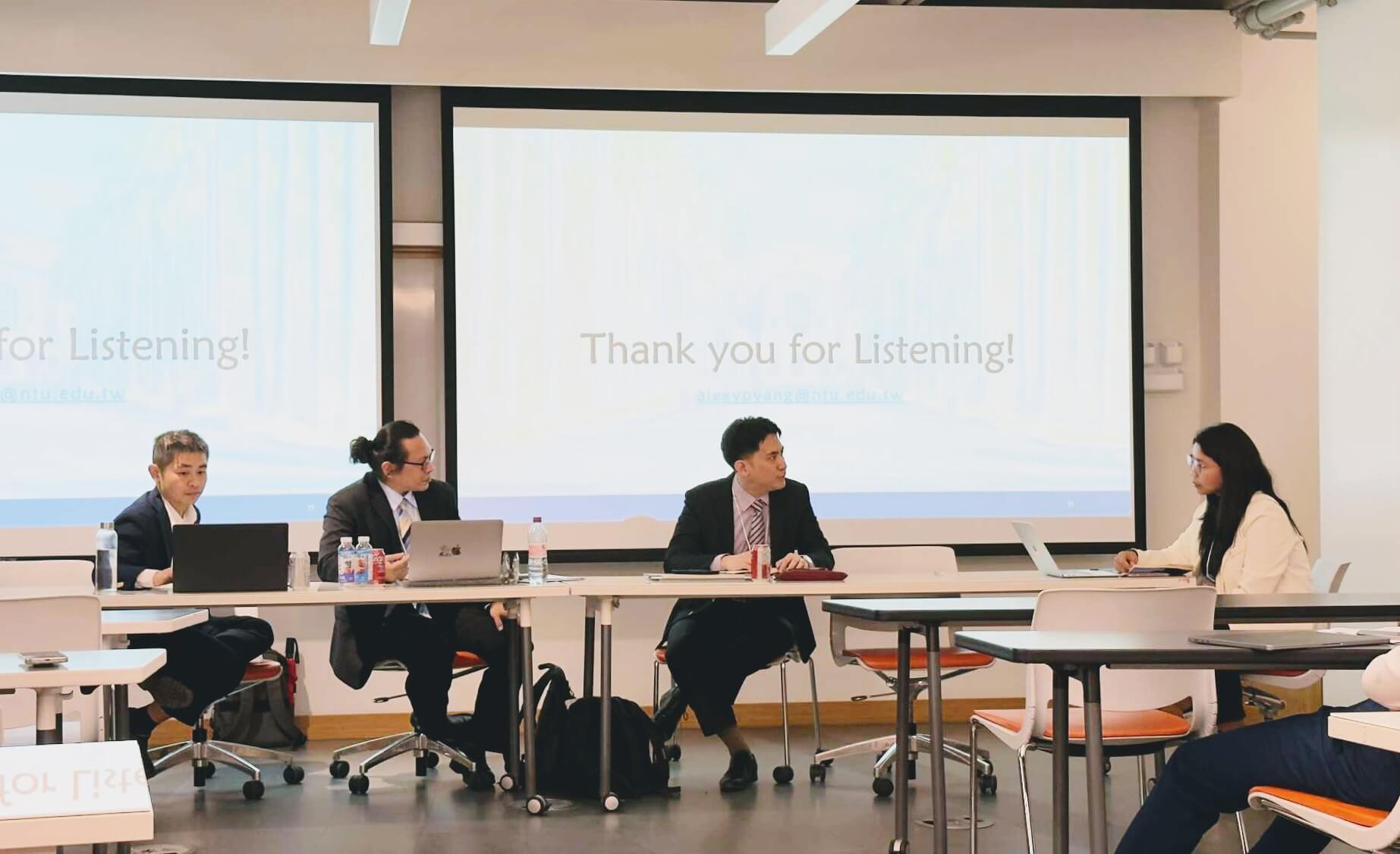
CIEL Deputy Director Prof. Yueh-Ping Yang Invited to Attend the 2025 International Forum on Virtual Asset Crimes Investigation and Cross-Border Cooperation
On November 13, 2025, CIEL Deputy Director Professor Yueh-Ping (Alex) Yang was invited to attend the “International Forum on Virtual Asset Crimes Investigation and Cross-Border Cooperation,” hosted by the Anti-Money Laundering Office, Executive Yuan. The forum brought together expert representatives from domestic and international government agencies to engage in in-depth discussions on topics including tracking illicit virtual asset flows, combating online fraud, and strengthening cross-border cooperation.

Deputy Director Yang served as a panelist in the session titled “Stablecoins and Chinese Web: Money Laundering and Clearing Services between Digital Asset and FIAT.” The session featured keynote presentations by Mathieu H. L. and Simon Roch from FIU France. From legal and regulatory perspectives, Deputy Director Yang highlighted the following key points:
- Traditional financial crime investigations have focused on monitoring money flows; however, in the era of digital finance, the boundary between money flows and data flows is increasingly blurred, calling for a rethinking of crime prevention strategies.
- In virtual asset–related crimes, the key points for investigation may be shifting from unregulated OTCs to unregulated decentralized finance (DeFi).
- Within DeFi ecosystems, SNS platforms, such as Telegram or Wechat, play a critical role in facilitating communication and coordination. Future criminal investigations should therefore extend beyond regulating financial intermediaries (e.g., VASPs) to also consider the role of digital platform service providers.

CIEL will continue to engage in international exchanges and work alongside government authorities and law enforcement agencies to advance the development of financial regulation and crime prevention frameworks for virtual assets.



































